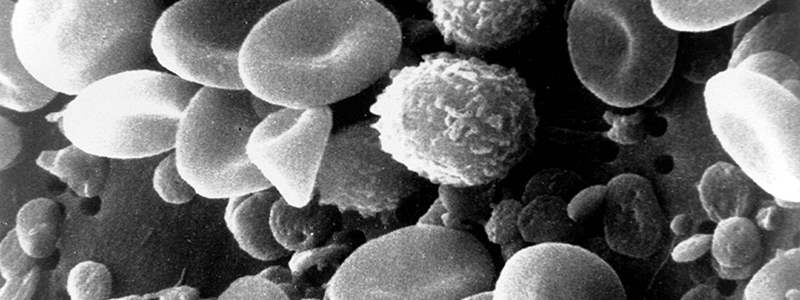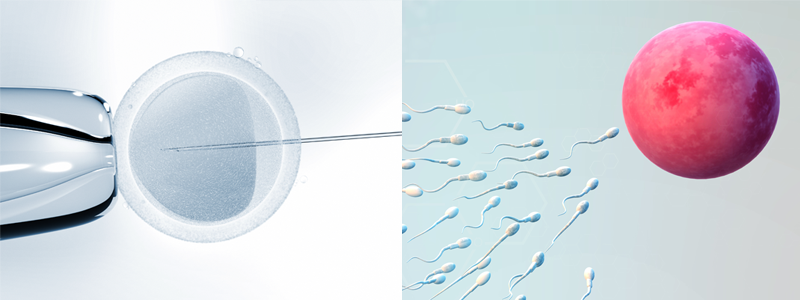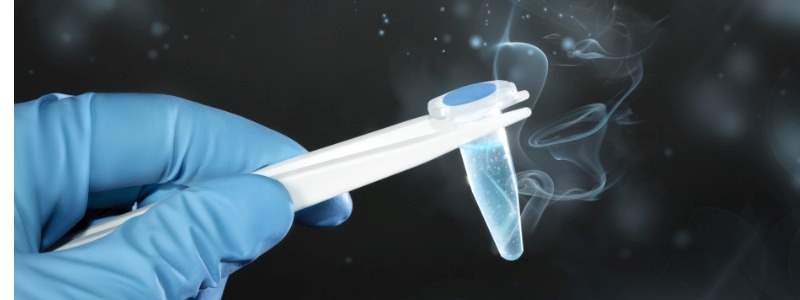Failure to implant and miscarriage after IVF are very common. This of course is also true of natural pregnancies, but where a couple has paid thousands of pounds for treatment, the desire to explain such events may be overpowering. Some clinicians have offered an answer to this question in the form of Natural Killer cells. These naturally occurring cells are reputed to lead to higher rates of miscarriage when their levels are too high. But are these cells really the key to understanding miscarriage or are they simply a naturally occurring phenomenon that has been used as a scapegoat by some parts of the fertility industry?
What are natural killer cells?
Natural Killer cells in the blood are naturally occurring cells which play a vital part in the immune system. They are lymphocytes (white blood cells) which are produced in the bone marrow, spleen and other parts of the body before circulating in the blood. The purpose of these cells is to recognise and target cells which do not belong to the body, e.g. tumours, viruses, bacteria. They are also important in the adaptive immune response, whereby the body becomes immune to infections it has previously encountered.
Natural Killer cells in the uterus appear to have similar features to those in the blood but their role is unknown; it is believed that they may play a part in mediating the maternal-foetus interface of the placenta.
Natural killer cells and pregnancy
It has been suggested since the 1950s that Natural Killer cells may play a part in pregnancy. In the 60s it was discovered that there were cells with similar features to Natural Killer cells in the endometrium, particularly in the interface between the mother and foetus. It has since been proposed that these cells may recognise the embryo as a foreign body and attack it, leading to an increased risk of miscarriage. Those clinicians who subscribe to this theory will often offer patients immune moderation treatment in the form of steroid treatments, intralipids or intravenous immunoglobulin.
Controversies surrounding Natural Killer cells
The difference between blood and uterus Natural Killer cells: One of the biggest criticisms of the killer cell theory is that the killer cells found in the uterus have an entirely different function to those found in the blood. While the Natural Killer cells found in the blood are used to target and kill foreign bodies, those in the uterus do not appear to serve this function at all. Instead, it has been suggested that uterine Natural Killer cells play a vital role in remodelling blood vessels in the mother so that mother and foetus both get an adequate blood supply. In fact, some research has revealed that having low levels of Natural Killer cells in the uterus can actually impede pregnancy and possibly lead to reduced foetal growth and even miscarriage, which is the exact outcome practitioners are trying to avoid with their Natural Killer cells treatment. To suggest that uterine Natural Killer cells perform the same functions as blood Natural Killer cells is therefore misleading and potentially very damaging if in fact these cells are important in foetal development.
Measuring Natural Killer cells:
Another problem with Natural Killer cells is that there is no standardised way to measure them. Often measurements of Natural Killer cells are taken from counts of peripherally circulating blood cells through a venous blood sample, which as mentioned above bear no relation to the cells in the uterus. Blood tests to measure Natural Killer cell levels are therefore inappropriate in the context of what is happening in the uterus, yet are still being used by some clinics to diagnose ‘elevated’ Natural Killer cell levels. Conversely, if tests are carried out on the uterus lining by obtaining a biopsy, there is still no standardised method for testing. Natural Killer cell numbers vary depending on the time in the menstrual cycle and the layer of the epithelium that is tested. There is also no agreement over what constitutes an ‘unusual’ level of Natural Killer cells. Scientists have said that although the percentage of cells in normal healthy women ranges from 5 to 29%, some clinics inform clients that a percentage over 12% is ‘elevated’ and requires treatment.
Evidence that Natural Killer cells are harmful:
Although proponents of the Natural Killer cell theory point to studies that support the use of Natural Killer cell treatment, the general consensus among the scientific community is that the evidence is weak. Most studies have revealed no correlation between Natural Killer cell levels and miscarriage, and the only reason that Natural Killer cell treatment ever works seems to be related to the care and attention received rather than the treatment itself. In fact the Human Fertilisation and Embryology Authority (HFEA) state that there is no evidence that immunosuppressive therapies improve your chance of getting pregnant.’
Necessity for fertility treatment:
If in fact uterine natural killer cells are leading to miscarriage and infertility, it would make sense that treating this causal problem would result in improved fertility and remove the need for fertility treatment. However, most clinics offering treatment for elevated Natural Killer cells are doing so alongside IVF and other assisted reproductive technologies. There has been no concrete evidence to suggest that Natural Killer cell treatment leads to improved rates of success in IVF.
Side effects:
Medications given to treat high levels of Natural Killer cells naturally have side effects themselves. Steroids for example, can increase blood pressure and lead to diabetes and premature birth, while receiving intravenous immunoglobulin occasionally results in headaches, dizziness and even kidney failure. This is another reason why the HFEA advises against Natural Killer cell treatment.
Conclusions
At the current time the exact function and mechanism of Natural Killer cells in the uterus is unknown. However, some clinics and practitioners are still assuming that uterine Natural Killer cells serve the same function as blood ones, and are treating patients on this basis. Providing women/couples with a reason for the failure of their cycles may offer false hope and lead to unnecessary medical intervention.
Studies looking in to these cells have produced conflicting results, but the majority of leading scientists in this area dispute that Natural Killer cells are a problem in fertility treatment and pregnancy. Given the potential side effects accompanying Natural Killer cell treatments, there does not seem to be enough justification for undergoing this testing and treatment.
If you want to know more about chances of miscarriage/failure to implant then Contact us






